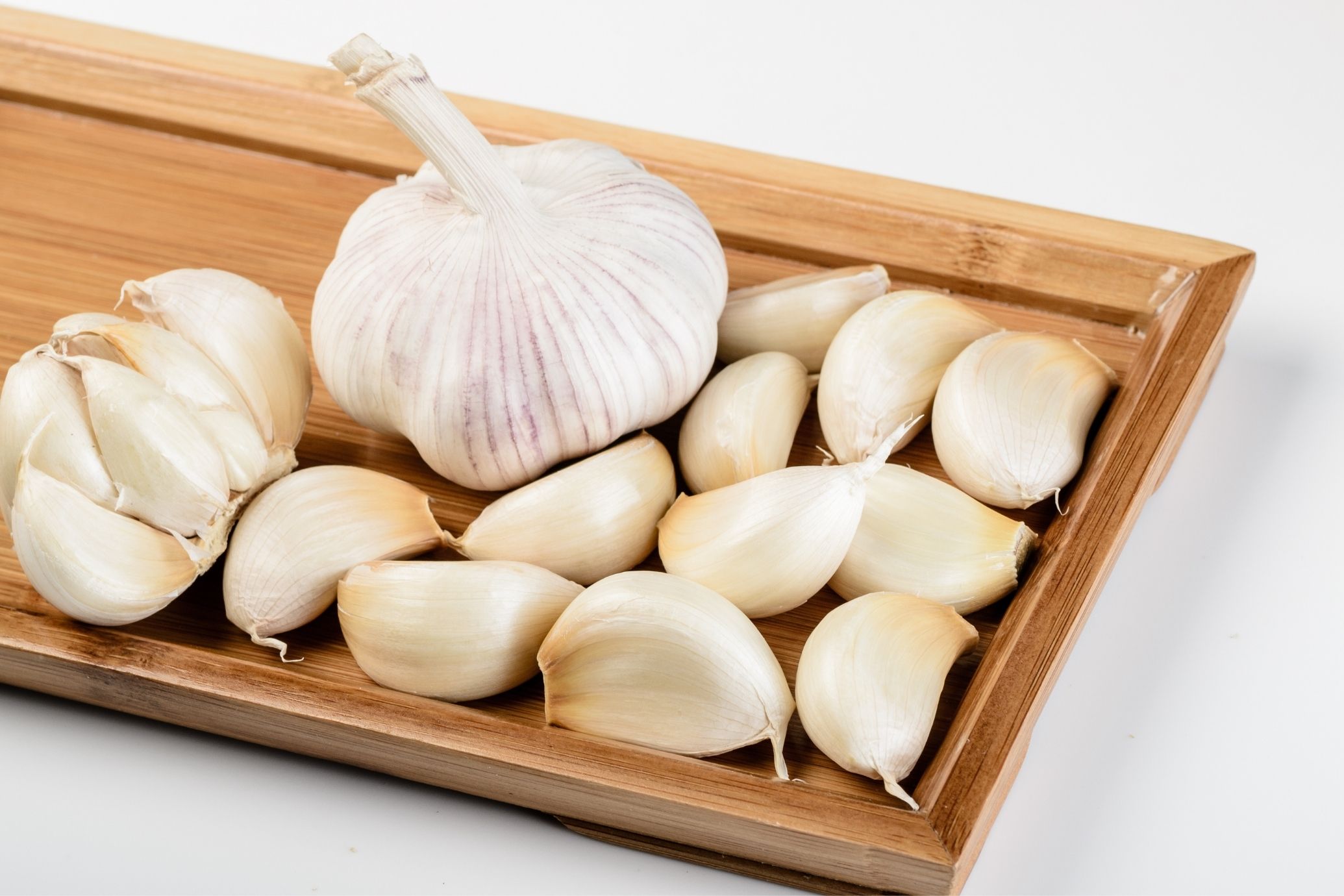

Articles
How To Store Garlic Cloves In Fridge
Modified: August 21, 2024
Learn how to store garlic cloves in the fridge to keep them fresh and flavorful. Read our informative articles for helpful tips and tricks.
(Many of the links in this article redirect to a specific reviewed product. Your purchase of these products through affiliate links helps to generate commission for Storables.com, at no extra cost. Learn more)
Introduction
Welcome to the wonderful world of garlic cloves! If you’re a garlic lover like me, you know that this pungent bulb is a kitchen staple that adds incredible flavor to countless dishes. But have you ever found yourself with an abundance of garlic cloves and wondered how to store them properly? Look no further, because in this article, I’ll guide you through the process of storing garlic cloves in the fridge.
Garlic cloves are highly perishable and can spoil quickly if not stored correctly. When stored in the fridge, the cloves can stay fresh for a longer period, preserving their flavor and aroma. By understanding the reasons behind storing garlic cloves in the fridge and learning the different methods to do so, you’ll be able to keep your garlic cloves fresh and readily available for all your culinary experiments.
So, why should you consider storing your garlic cloves in the fridge? Let’s explore a few compelling reasons:
- Extended Shelf Life: Garlic cloves stored in the fridge can last for several months, compared to just a few weeks on the kitchen counter.
- Retained Flavor and Aroma: The cold temperature of the fridge helps to slow down the enzymatic reactions that cause garlic to lose its flavor and aroma.
- Protection from Mold and Sprouting: Storing garlic cloves in the fridge provides a cool and dry environment, reducing the chances of mold growth and sprouting.
- Convenience and Accessibility: Having fresh garlic cloves at hand in the fridge makes it easier to add them to your favorite recipes whenever you need them.
Now that you’re convinced about the benefits of storing garlic cloves in the fridge, let’s dive into the next section, where we’ll discuss how to choose and prepare garlic cloves for storage.
Key Takeaways:
- Storing garlic cloves in the fridge extends their shelf life, preserves their flavor, and provides convenient access for culinary needs. Choose fresh cloves, use airtight containers, and monitor for spoilage to maximize freshness.
- Whether stored in plastic bags, glass jars, or olive oil, the fridge offers versatile options for preserving garlic cloves. Proper preparation, labeling, and occasional checks ensure a steady supply of flavorful garlic for your cooking adventures.
Read more: How To Store Garlic In Fridge
Why Store Garlic Cloves in the Fridge?
Storing garlic cloves in the fridge offers several advantages over other storage methods. Here are some key reasons why you should consider refrigerating your garlic cloves:
Extended Shelf Life: Garlic cloves are highly perishable and can spoil quickly when exposed to moisture, heat, and light. By storing them in the fridge, you can significantly extend their shelf life. Instead of lasting just a few weeks on the kitchen counter, refrigerated garlic cloves can stay fresh for several months. This means you can buy garlic in bulk or harvest it from your garden and enjoy its flavor for a longer period.
Preserved Flavor and Aroma: Garlic is prized for its unique flavor and aroma. However, when exposed to air and moisture, garlic cloves can lose their potency and develop a milder flavor. The cold temperature in the fridge helps slow down the enzymatic reactions that cause this loss of flavor and aroma. By storing garlic cloves in the fridge, you can preserve their distinct, robust taste, ensuring that each clove delivers a flavorful punch to your dishes.
Protection from Mold and Sprouting: Garlic cloves are prone to mold growth and sprouting in moist and warm conditions. Refrigeration provides a cool and dry environment that helps prevent these issues. Exposing garlic cloves to moisture and warmth can lead to mold growth, which not only affects the flavor but also compromises the clove’s quality. Additionally, if garlic cloves sprout, they become bitter and lose their culinary appeal. Storing garlic cloves in the fridge minimizes the risk of mold growth and sprouting, allowing you to enjoy fresh and healthy cloves for longer.
Convenience and Accessibility: Storing garlic cloves in the fridge offers the convenience of having them readily available whenever you need them. Whenever a recipe calls for garlic, you can easily grab a clove from your refrigerated stash. This eliminates the need for last-minute grocery store runs and ensures that you always have fresh garlic cloves on hand, ready to enhance the flavor of your dishes.
Versatile Storage Options: Storing garlic cloves in the fridge provides a variety of storage methods to choose from, depending on your preference and convenience. Whether you prefer using plastic bags, glass jars, or even storing them in olive oil, the fridge offers a versatile platform to accommodate your preferred storage method.
Now that you understand the benefits of storing garlic cloves in the fridge, let’s move on to the next section, where we’ll discuss how to choose and prepare garlic cloves for storage.
Choosing and Preparing Garlic Cloves for Storage
Before you start storing your garlic cloves in the fridge, it’s important to choose the right cloves and prepare them properly. Follow these steps to ensure that your garlic cloves stay fresh and flavorful:
1. Selecting Fresh Garlic: Choose garlic bulbs that are firm and tightly wrapped in their papery skin. Avoid bulbs that have soft spots or show signs of mold or sprouting. Fresh garlic cloves have a strong aroma and a vibrant white or off-white color.
2. Separating the Cloves: To prepare the garlic cloves for storage, gently separate them from the bulb. Garlic bulbs typically consist of several individual cloves held together by a central stem. Carefully twist or pull the cloves apart, ensuring that each clove remains intact.
3. Removing the Skin: Garlic cloves are covered in a thin, papery skin that needs to be removed before storage. You can peel the skin off by gently pressing down on each clove with the flat side of a knife or by using your fingers to loosen the skin. The skin should come off easily, revealing the smooth and creamy surface of the clove.
4. Inspecting for Imperfections: While preparing the garlic cloves, inspect them for any imperfections or signs of damage. Remove any cloves that are bruised, discolored, or have visible signs of mold. It’s crucial to store only the healthy and undamaged cloves to ensure the quality and longevity of your stored garlic.
5. Optional: Chopping or Crushing: Depending on your preference and intended use, you may choose to chop or crush your garlic cloves before storage. This can be a time-saving option if you frequently use minced or crushed garlic in your recipes. However, keep in mind that chopped or crushed garlic tends to lose its flavor and aroma more quickly than whole cloves. If you opt for this method, store the minced or crushed garlic in an airtight container in the fridge.
By carefully selecting and preparing your garlic cloves, you’re taking the necessary steps to ensure that they stay fresh and flavorful throughout their storage in the fridge. In the next section, we’ll explore different methods to store garlic cloves in the fridge, so you can choose the one that works best for you.
Different Methods to Store Garlic Cloves in the Fridge
When it comes to storing garlic cloves in the fridge, there are a few different methods you can choose from. Each method offers unique advantages and allows for varying storage durations. Here are three popular methods that you can consider:
1. Storing Garlic Cloves in Plastic Bags: This is a simple and convenient method. Place the prepared garlic cloves in a resealable plastic bag and remove as much air as possible before sealing. The plastic bag helps maintain a cool and dry environment, preventing moisture and odor transfer. Make sure to label the bag with the date to keep track of freshness. This method is ideal for short-term storage, lasting up to a few months in the fridge.
2. Storing Garlic Cloves in Glass Jars: Glass jars offer a visually appealing and sustainable storage option for garlic cloves. After preparing the cloves, place them in a clean glass jar and seal it tightly. Ensure that the jar is clean and dry to avoid moisture buildup. The transparency of the jar allows you to see the garlic cloves without compromising the freshness. With proper sealing and refrigeration, garlic cloves stored in glass jars can last for several months.
3. Storing Garlic Cloves in Olive Oil: If you prefer to have ready-to-use minced garlic or garlic-infused oil, this method is perfect for you. After peeling and chopping the cloves, place them in a clean glass jar or an airtight container. Pour enough olive oil to cover the cloves completely, making sure there are no air pockets. Olive oil acts as a preservative and adds flavor to the garlic. Keep the jar in the fridge and use as desired. Remember that garlic stored in oil has a shorter shelf life and should be used within a month for safety reasons.
Each of these methods offers a practical way to store your garlic cloves in the fridge. Consider your storage needs and preferences when choosing the method that works best for you. Whichever method you choose, make sure to follow proper storage guidelines to maintain the quality and freshness of your garlic cloves. In the next section, I’ll share some tips for properly storing garlic cloves in the fridge.
Method 1: Storing Garlic Cloves in Plastic Bags
If you’re looking for a simple and convenient method to store garlic cloves in the fridge, using plastic bags is a popular option. Here’s how you can do it:
1. Prepare the Garlic Cloves: Start by selecting fresh garlic bulbs and separating the cloves. Gently remove the papery skin from each clove, ensuring that they are intact and undamaged.
2. Place Cloves in a Resealable Plastic Bag: Take a resealable plastic bag and place the prepared garlic cloves inside. You can use a regular zip-top bag or opt for specialized produce bags that are designed to maintain the freshness of fruits and vegetables.
3. Remove Air from the Bag: Before sealing the bag, try to remove as much air as possible. This will help prevent moisture buildup and keep the cloves fresh for longer. One way to do this is by gently pressing down on the bag to push out excess air, starting from the bottom and working your way up.
4. Seal and Label the Bag: Once you’ve removed the air from the bag, seal it tightly to ensure a secure closure. It’s important to label the bag with the date of storage to keep track of freshness. Use a marker or sticker to write the date on the bag, making it easier to identify how long the garlic cloves have been stored.
5. Store in the Fridge: Place the sealed plastic bag of garlic cloves in the refrigerator. Make sure to store it in a cool and dry spot, away from moisture and odors. The fridge’s low temperature will help preserve the cloves and extend their shelf life.
This method of storing garlic cloves in plastic bags is ideal for short-term storage, lasting up to a few months in the fridge. It offers convenience and easy access to the garlic whenever you need it for your recipes. It’s important to keep in mind that the garlic cloves may dry out slightly over time when stored in plastic bags. However, they will still retain their flavor and can be used in various culinary applications.
Now that you know how to store garlic cloves in plastic bags, let’s move on to the next method – storing garlic cloves in glass jars.
Store garlic cloves in the fridge in a well-ventilated container or mesh bag to prevent sprouting and mold. Keep them away from moisture to prolong their shelf life.
Read more: How To Store Peeled Garlic In Fridge
Method 2: Storing Garlic Cloves in Glass Jars
If you prefer a visually appealing and sustainable storage option for your garlic cloves, storing them in glass jars is a fantastic method. Here’s how you can do it:
1. Prepare the Garlic Cloves: Begin by selecting fresh garlic bulbs and separating the cloves. Carefully remove the papery skin from each clove, ensuring that they are intact and free from any blemishes or mold.
2. Choose Clean Glass Jars: Select clean and dry glass jars that are suitable for storing garlic cloves. These can include mason jars, empty spice jars, or any other airtight containers with a secure lid. Make sure the jars are large enough to accommodate the desired quantity of cloves.
3. Place Cloves in the Jars: Place the prepared garlic cloves inside the clean glass jars. Fill the jars with the cloves, leaving a little headspace at the top. Ensure that the cloves are not tightly packed, as this can lead to excess moisture and the potential for mold growth.
4. Seal the Jars Tightly: Once the cloves are inside the jars, seal them tightly with the lid. Ensure that the lids are secure and airtight to prevent any air or moisture from entering the jars. This will help maintain the freshness and flavor of the garlic cloves.
5. Store in the Fridge: Place the sealed glass jars of garlic cloves in the refrigerator. Find a cool spot in the fridge where the jars won’t be exposed to too much light or fluctuating temperatures. The cool environment will help preserve the cloves and extend their shelf life.
Storing garlic cloves in glass jars offers several advantages. Not only does it provide a visually appealing storage option, but it also allows you to easily see and access the cloves without compromising their freshness. Glass jars also prevent odor transfer and provide a cool and dry environment, reducing the risk of mold growth.
This method is ideal for long-term storage, as garlic cloves stored in glass jars can stay fresh for several months in the fridge. Just make sure to check the cloves occasionally for any signs of spoilage or mold, and discard any cloves that show signs of deterioration.
With your garlic cloves securely stored in glass jars, you can confidently add the flavorful punch of garlic to your favorite dishes whenever you need it. Next, let’s explore another method of storing garlic cloves in the fridge—storing them in olive oil.
Method 3: Storing Garlic Cloves in Olive Oil
If you love the convenience of having minced garlic or garlic-infused oil at your fingertips, storing garlic cloves in olive oil is the perfect method for you. Here’s how you can do it:
1. Prepare the Garlic Cloves: Start by selecting fresh garlic bulbs and separating the cloves. Gently remove the papery skin from each clove, ensuring they are intact and free from any blemishes or mold.
2. Peel and Chop the Garlic: Once the cloves are prepared, you have the option to peel and chop them into smaller pieces. This step is not necessary, but it can save you time and effort whenever you need minced garlic for your recipes.
3. Place Cloves in a Clean Jar: Take a clean glass jar or an airtight container and put the prepared garlic cloves inside. You can choose a jar that is suitable for the quantity of garlic cloves you have. Make sure the jar is clean and completely dry to prevent any moisture buildup.
4. Fill the Jar with Olive Oil: Pour enough olive oil into the jar to completely cover the garlic cloves. Ensure that all the cloves are submerged in the oil, with no air pockets. The oil acts as a preservative, keeping the cloves fresh and preventing spoilage.
5. Seal the Jar Tightly: Once the garlic cloves are covered in olive oil, seal the jar tightly with the lid. Ensure that the lid is secure and airtight to prevent any air or moisture from entering the jar. This will help preserve the freshness and flavor of the garlic cloves.
6. Store in the Fridge: Place the sealed jar of garlic cloves in the refrigerator. Ensure that it is stored in a cool spot away from direct light and temperature fluctuations. The fridge’s low temperature will help prevent the growth of bacteria and extend the shelf life of the garlic cloves.
Storing garlic cloves in olive oil offers the convenience of having minced garlic readily available whenever you need it. Additionally, the garlic-infused oil can be used in various culinary applications to add flavor to your dishes. However, it’s important to note that garlic stored in oil should be used within a month for safety reasons.
Remember to check the jar for any signs of spoilage, such as off odors or discoloration, and discard the contents if any such signs are present. It’s also crucial to store garlic cloves in oil in the fridge and not at room temperature, as this can create an environment conducive to bacterial growth.
Now that you know how to store garlic cloves in olive oil, you can enjoy the convenience of having minced garlic or garlic-infused oil readily available for your culinary endeavors.
Tips for Properly Storing Garlic Cloves in the Fridge
To ensure that your garlic cloves stay fresh and flavorful in the fridge, consider these tips for proper storage:
1. Choose Fresh Garlic Cloves: Select garlic bulbs that are firm and free from mold, sprouting, or soft spots. Fresh cloves have a strong aroma and vibrant color, indicating their quality.
2. Avoid Moisture and Odor Exposure: Garlic cloves are sensitive to moisture and can absorb strong odors from other foods. Store the cloves in airtight containers or sealed plastic bags to protect them from moisture and prevent odor transfer.
3. Keep the Fridge Temperature Consistent: Garlic cloves should be stored in a cool and consistent temperature environment. Avoid placing them near the fridge door or areas that are prone to temperature fluctuations.
4. Label and Date the Storage Containers: To keep track of freshness, label your storage containers with the date of storage. This will help you keep a check on the shelf life of the garlic cloves and ensure they are used within a reasonable timeframe.
5. Check for Spoilage: Regularly inspect the garlic cloves for any signs of spoilage, such as mold growth, softening, or off odors. Remove any spoiled cloves immediately to prevent them from affecting the remaining cloves.
6. Minimize Handling: Avoid excessive handling of the garlic cloves. Excessive touching can lead to moisture transfer from your hands, causing the cloves to deteriorate more quickly. Use clean utensils or gloves when handling the cloves.
7. Store Different Varieties Separately: If you have different varieties of garlic cloves, store them separately. Some varieties may have different shelf lives or flavor profiles, and storing them together may affect their quality. Keep them in separate containers or bags.
8. Use proper Storage Methods: Consider the different storage methods available, such as storing in plastic bags, glass jars, or in olive oil. Choose the method that suits your needs and the quantity of garlic cloves you have.
9. Keep an Eye on Sprouting: If you notice any cloves starting to sprout, either remove them or use them as soon as possible. Sprouted cloves tend to have a bitter taste and can affect the flavor of your dishes.
10. Use Fresh Garlic When Possible: While storing garlic cloves in the fridge can extend their shelf life, it’s always best to use fresh garlic when possible. Using freshly peeled garlic cloves will provide the most robust flavor and aroma to your recipes.
By following these tips, you can maximize the shelf life and flavor of your garlic cloves when storing them in the fridge. Enjoy the convenience of having fresh garlic at hand for your culinary creations.
Now that you’re equipped with the knowledge of properly storing garlic cloves in the fridge, it’s time to conclude our article.
Conclusion
Storing garlic cloves in the fridge is a great way to extend their shelf life and preserve their flavor and aroma. Whether you choose to store them in plastic bags, glass jars, or olive oil, each method offers its own benefits and allows for convenient access to fresh garlic whenever you need it in your cooking.
By carefully selecting and preparing your garlic cloves, you can ensure that they stay fresh and flavorful for longer periods. Choosing fresh bulbs, separating the cloves, and removing the papery skin are crucial steps in the preparation process.
When it comes to storing garlic cloves in the fridge, it’s important to create a cool and dry environment to prevent mold growth and maintain their quality. Plastic bags, glass jars, and olive oil all provide effective storage solutions, depending on your preferences and usage.
Remember to check your stored garlic cloves periodically for any signs of spoilage and discard any cloves that have deteriorated. Proper labeling, dating, and organization will help you keep track of freshness and ensure that you use the garlic cloves within a reasonable timeframe.
Finally, while storing garlic cloves in the fridge is a convenient option, there’s nothing quite like the flavor and aroma of freshly peeled garlic. Whenever possible, try to use fresh garlic cloves as they offer the most robust taste and elevate the flavors in your culinary creations.
Now that you have the knowledge and tips for properly storing garlic cloves in the fridge, you can keep your garlic fresh and readily available for all your cooking adventures. So go ahead, stock up on garlic and enjoy the delightful flavors it brings to your dishes!
Frequently Asked Questions about How To Store Garlic Cloves In Fridge
Was this page helpful?
At Storables.com, we guarantee accurate and reliable information. Our content, validated by Expert Board Contributors, is crafted following stringent Editorial Policies. We're committed to providing you with well-researched, expert-backed insights for all your informational needs.
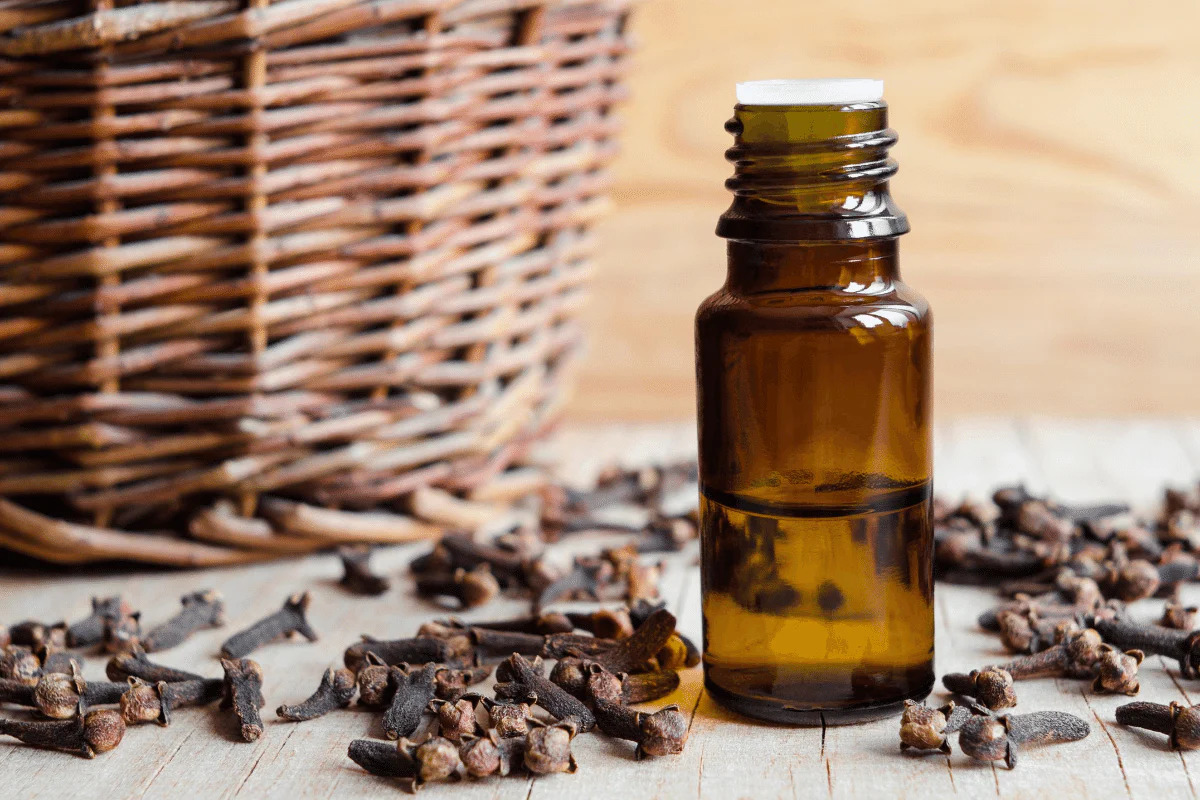
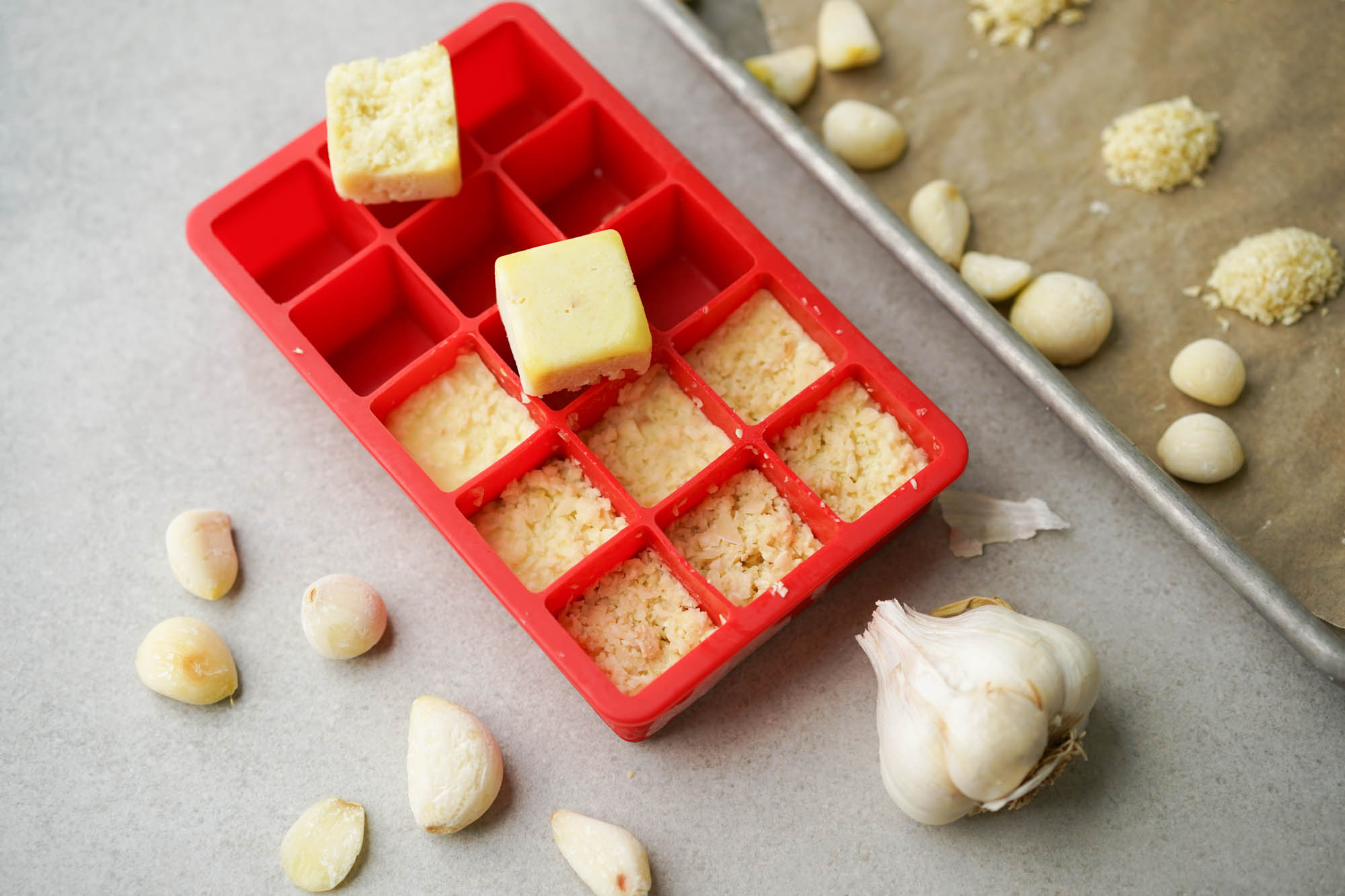
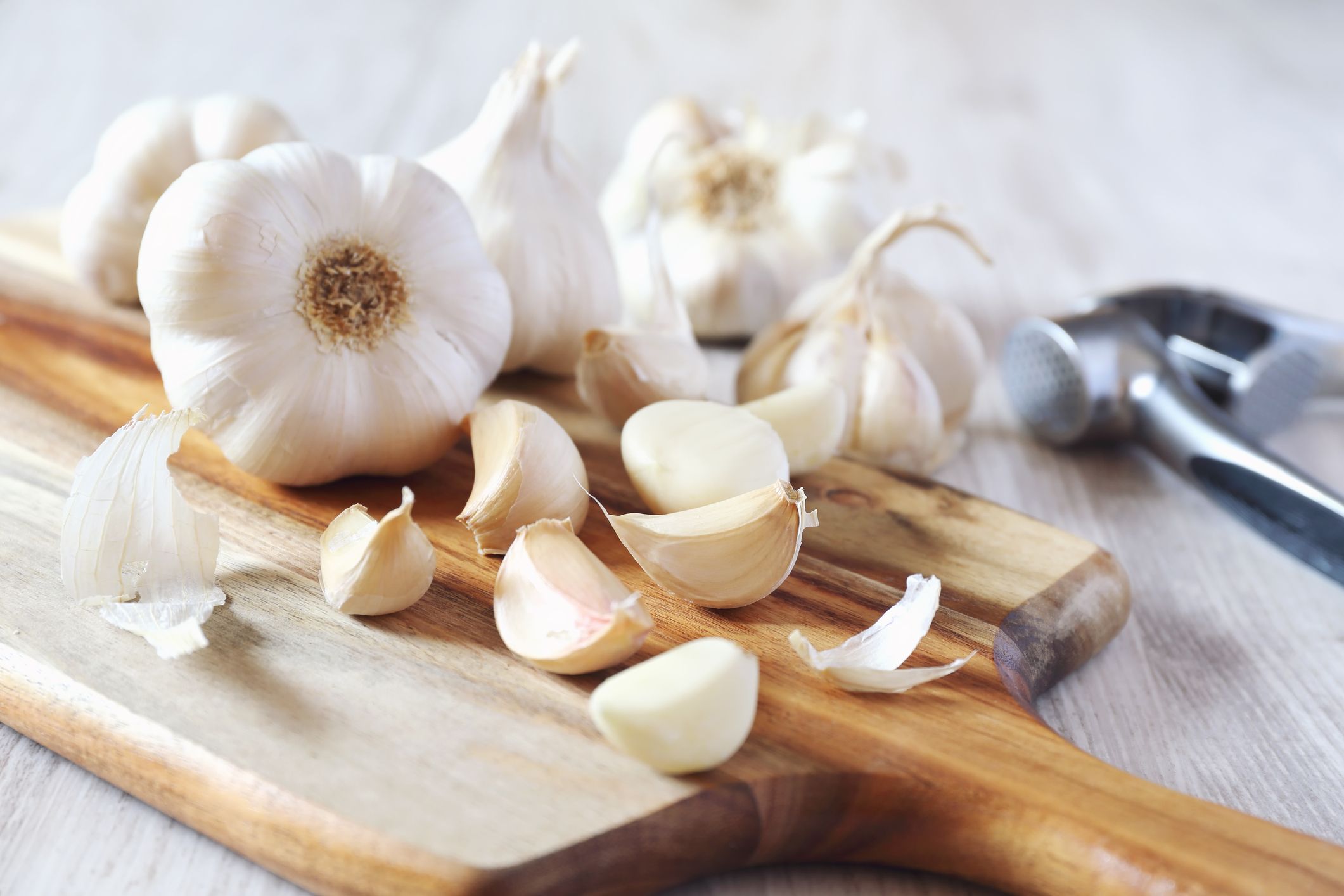
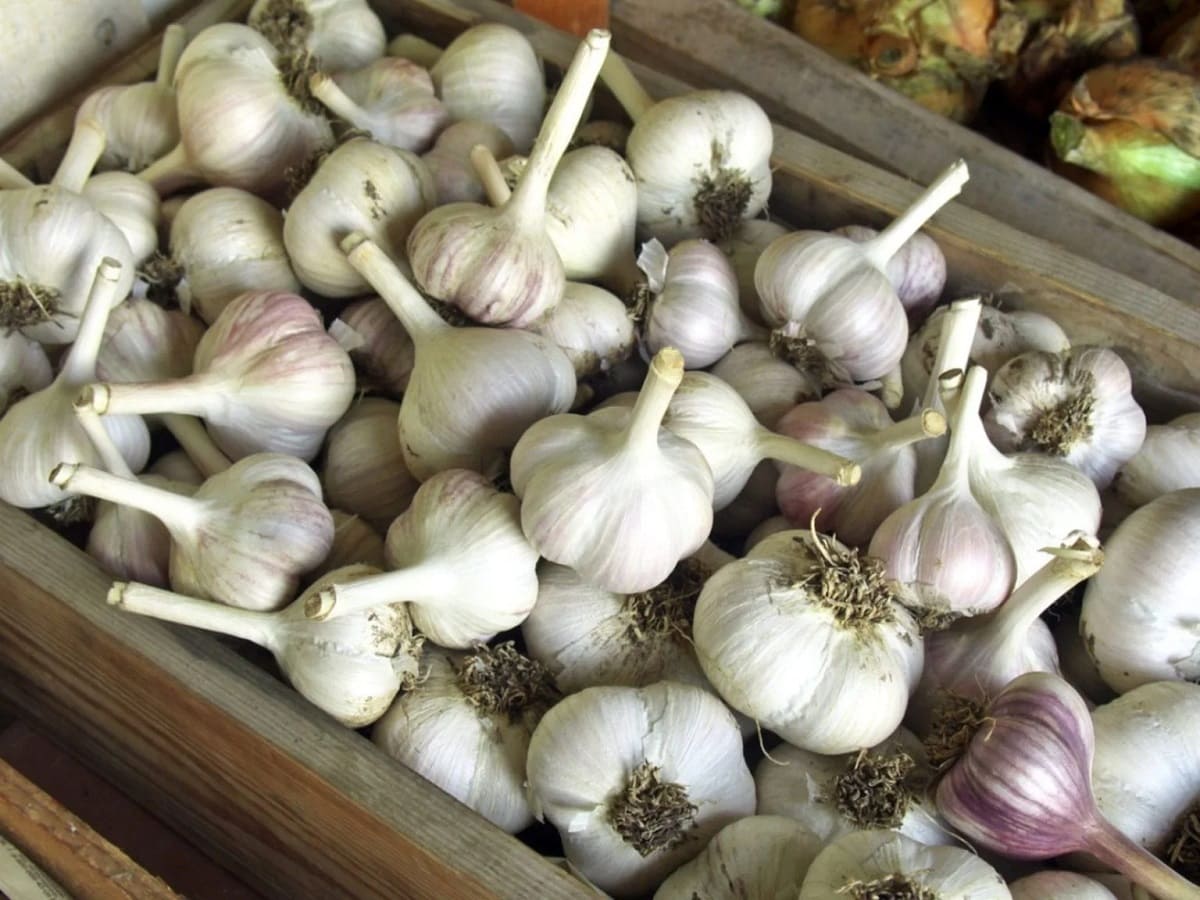
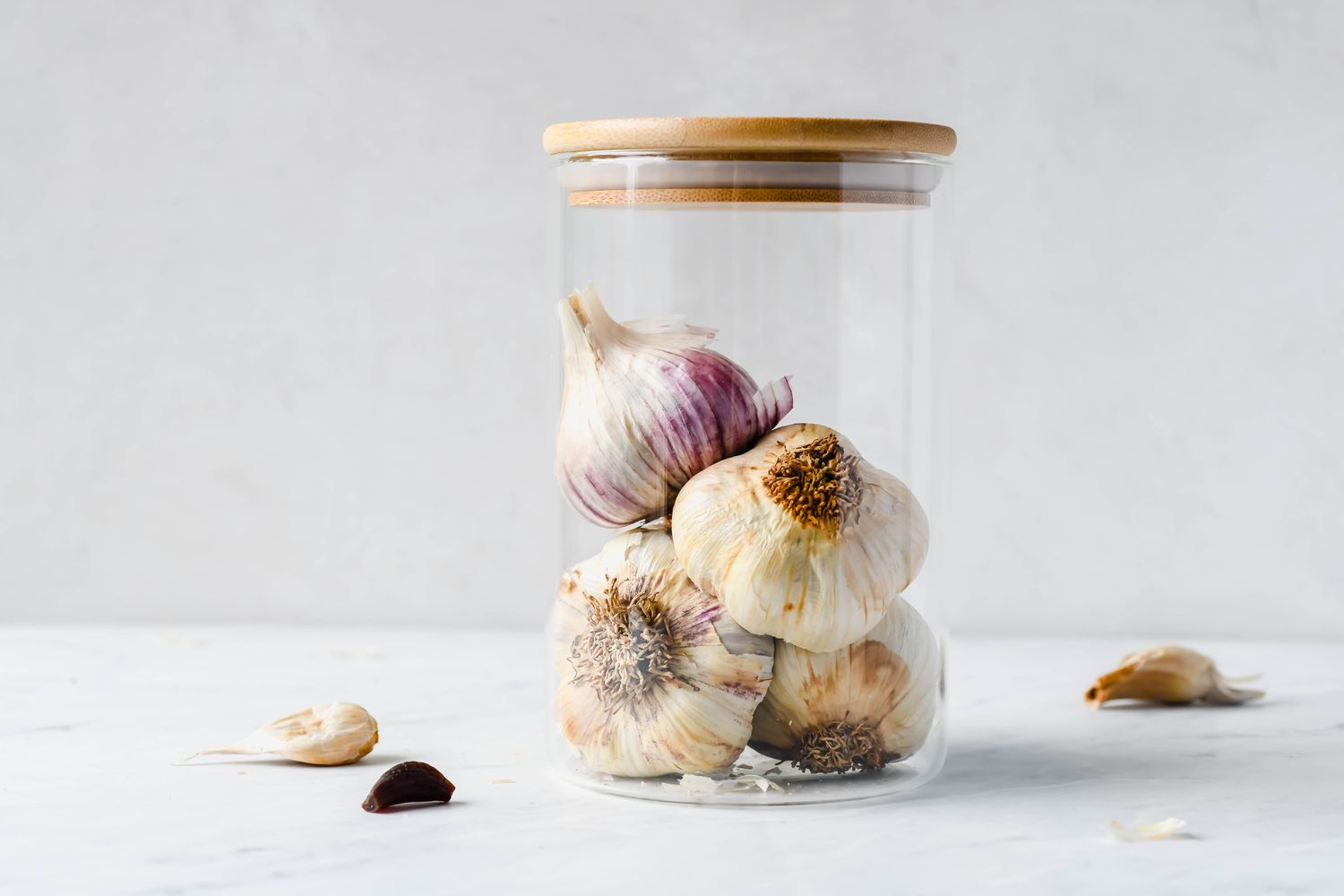
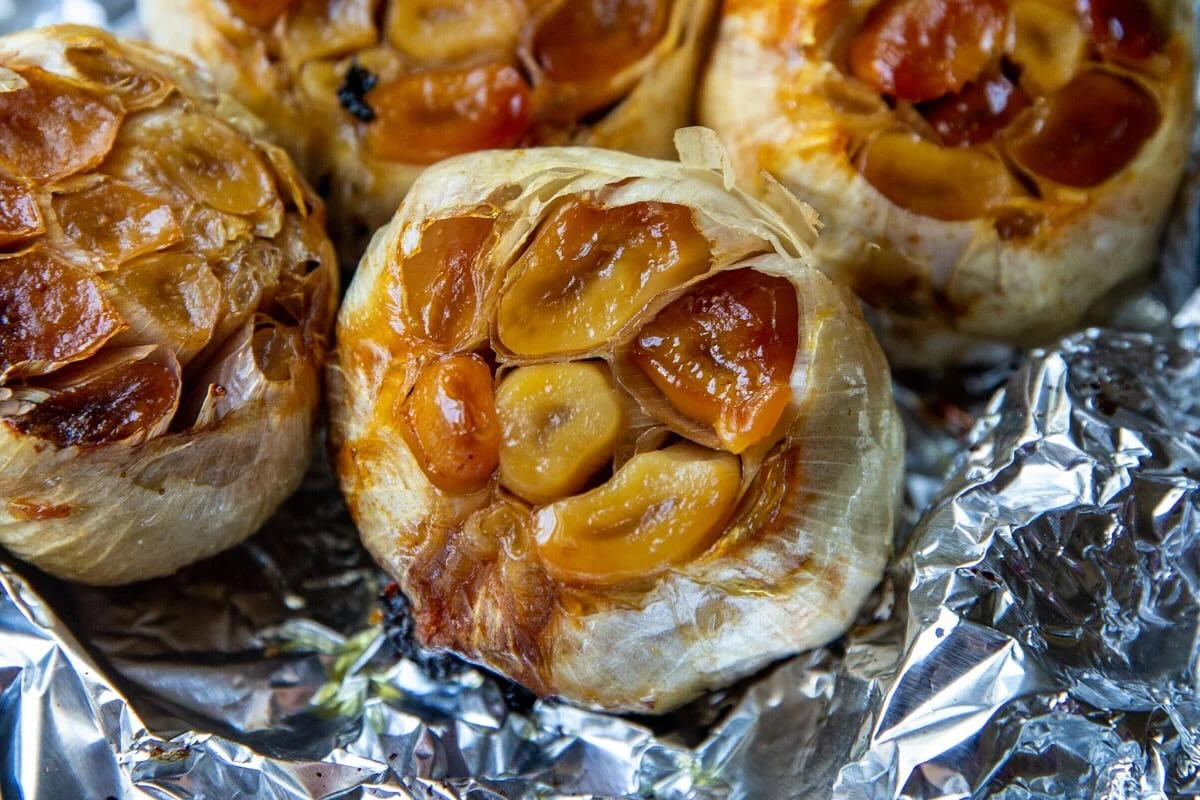
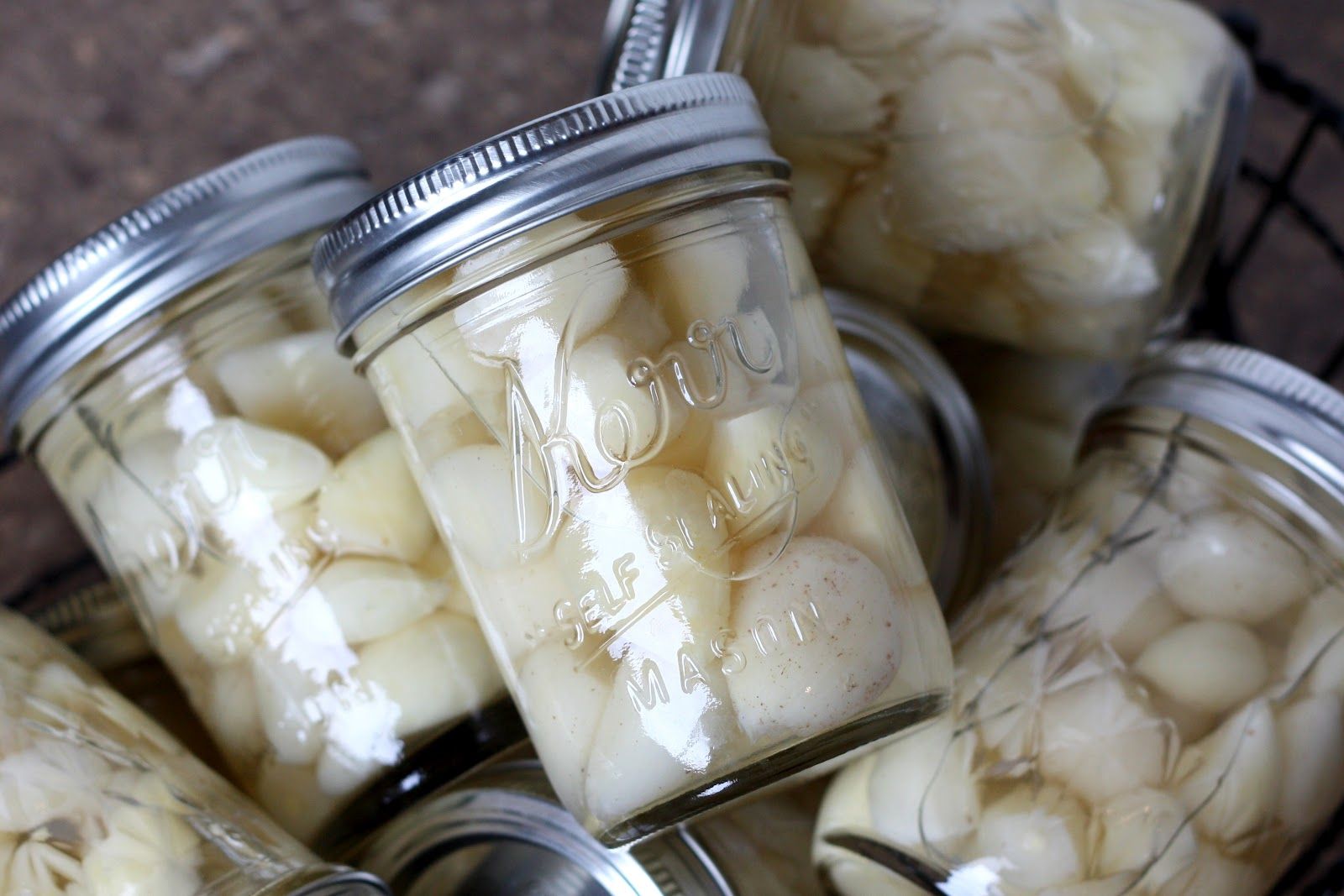
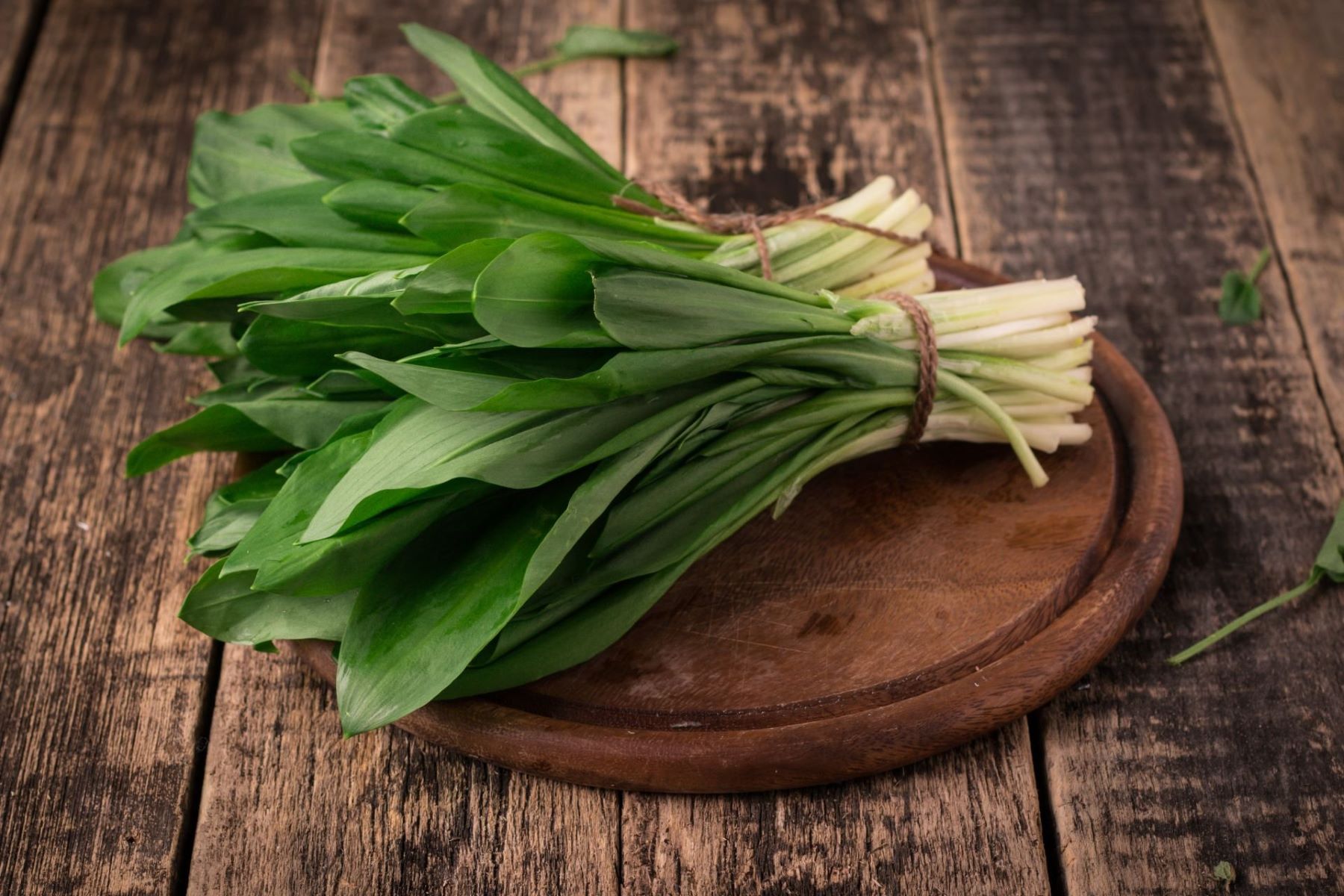
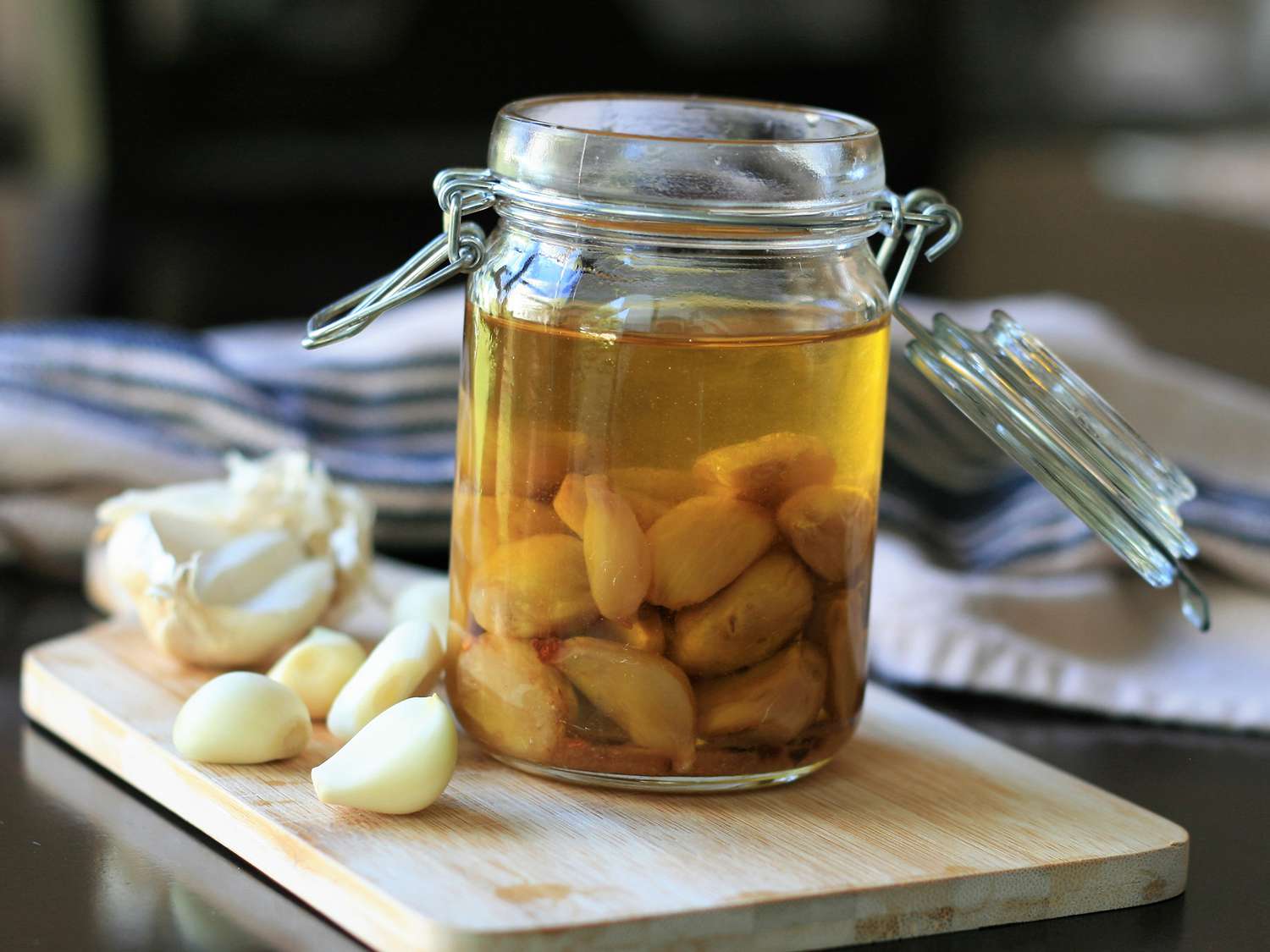
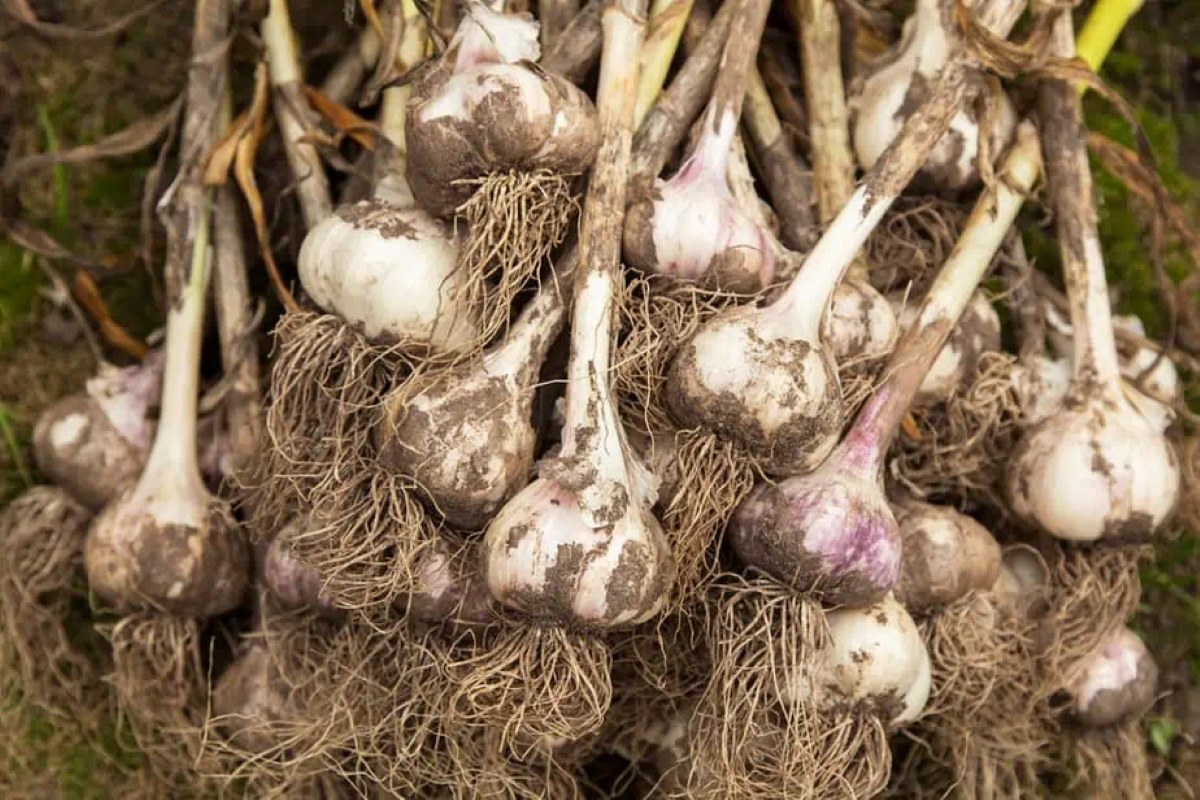
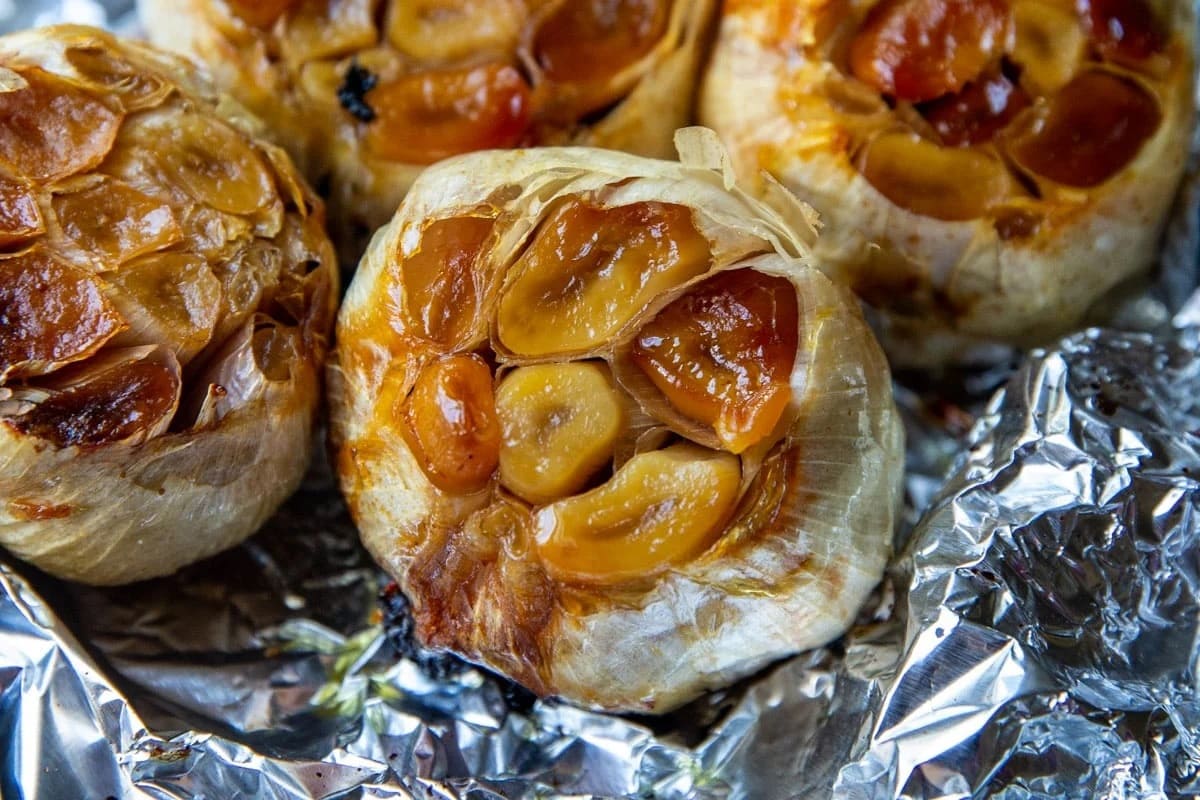
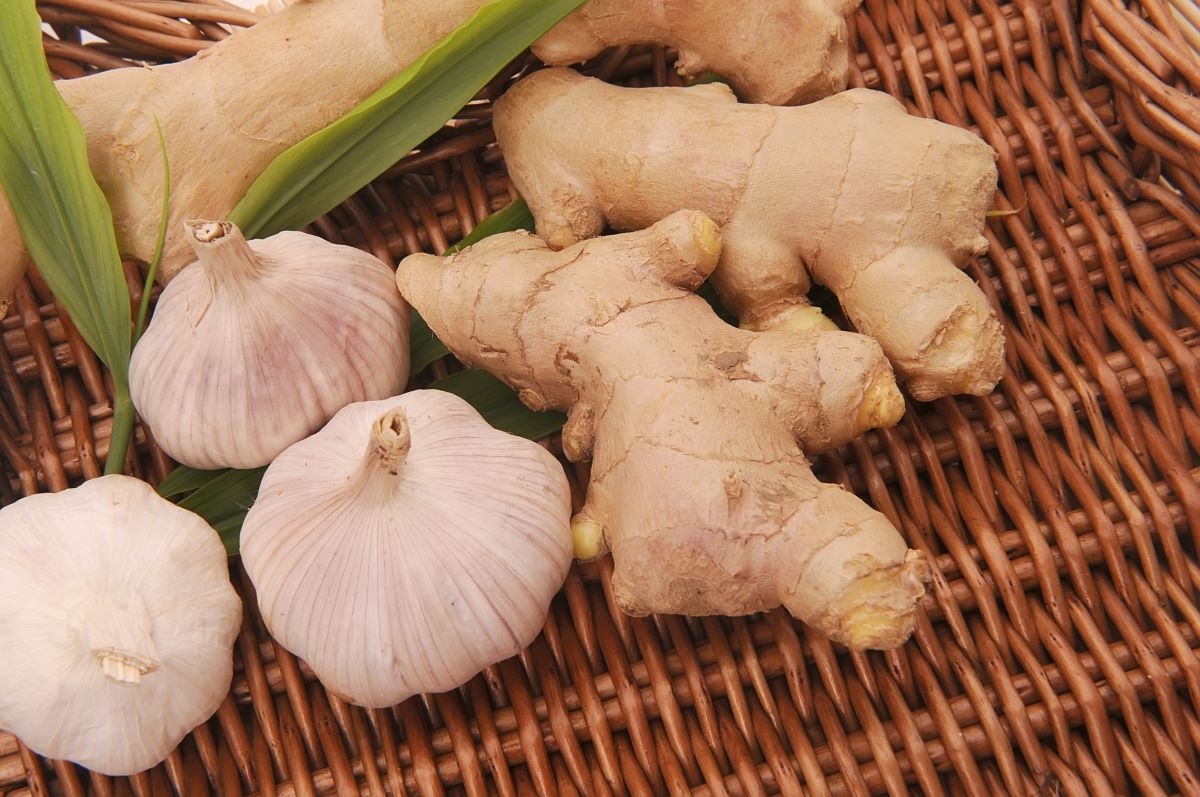
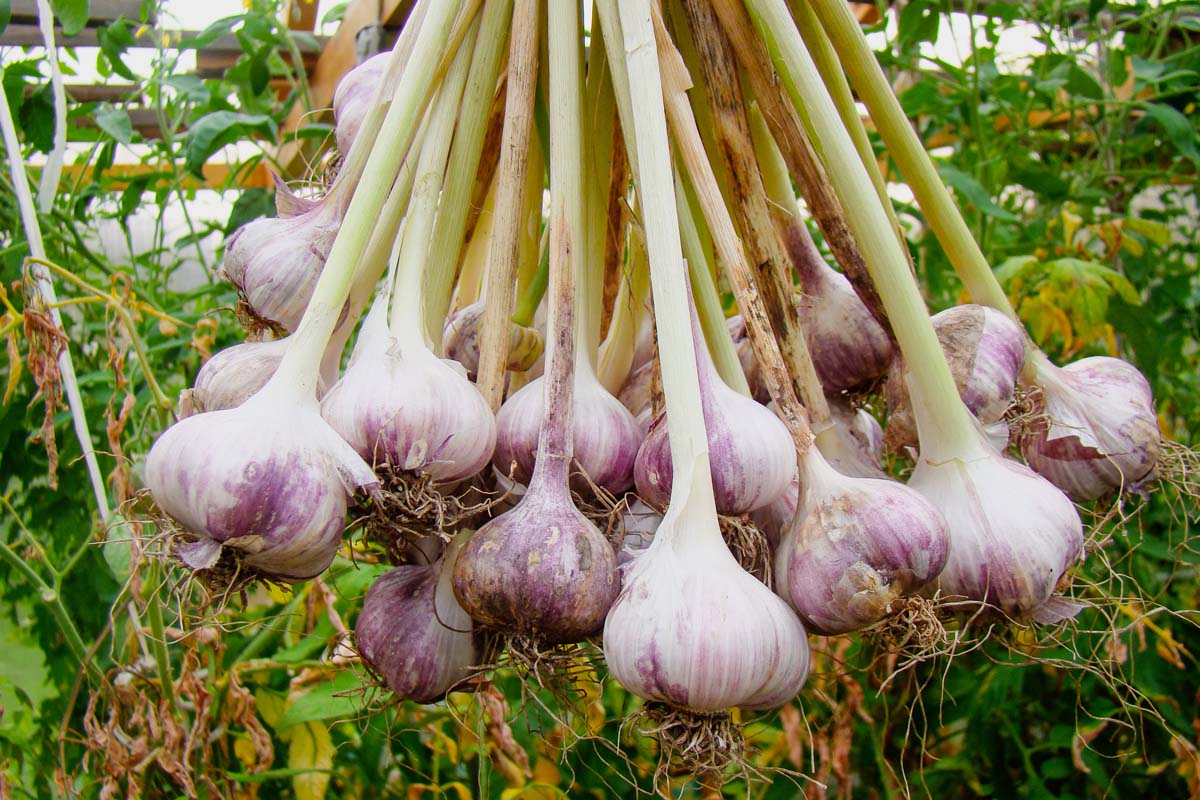
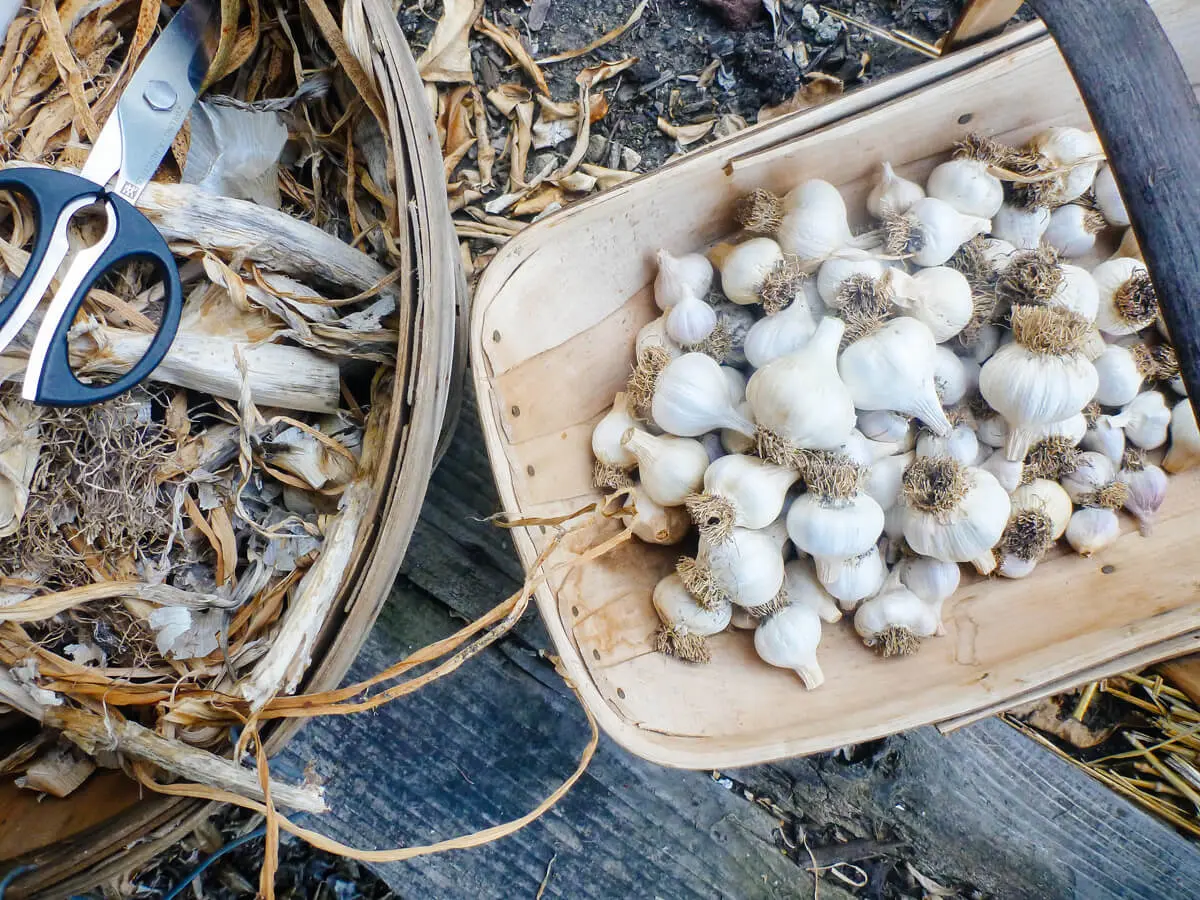

0 thoughts on “How To Store Garlic Cloves In Fridge”